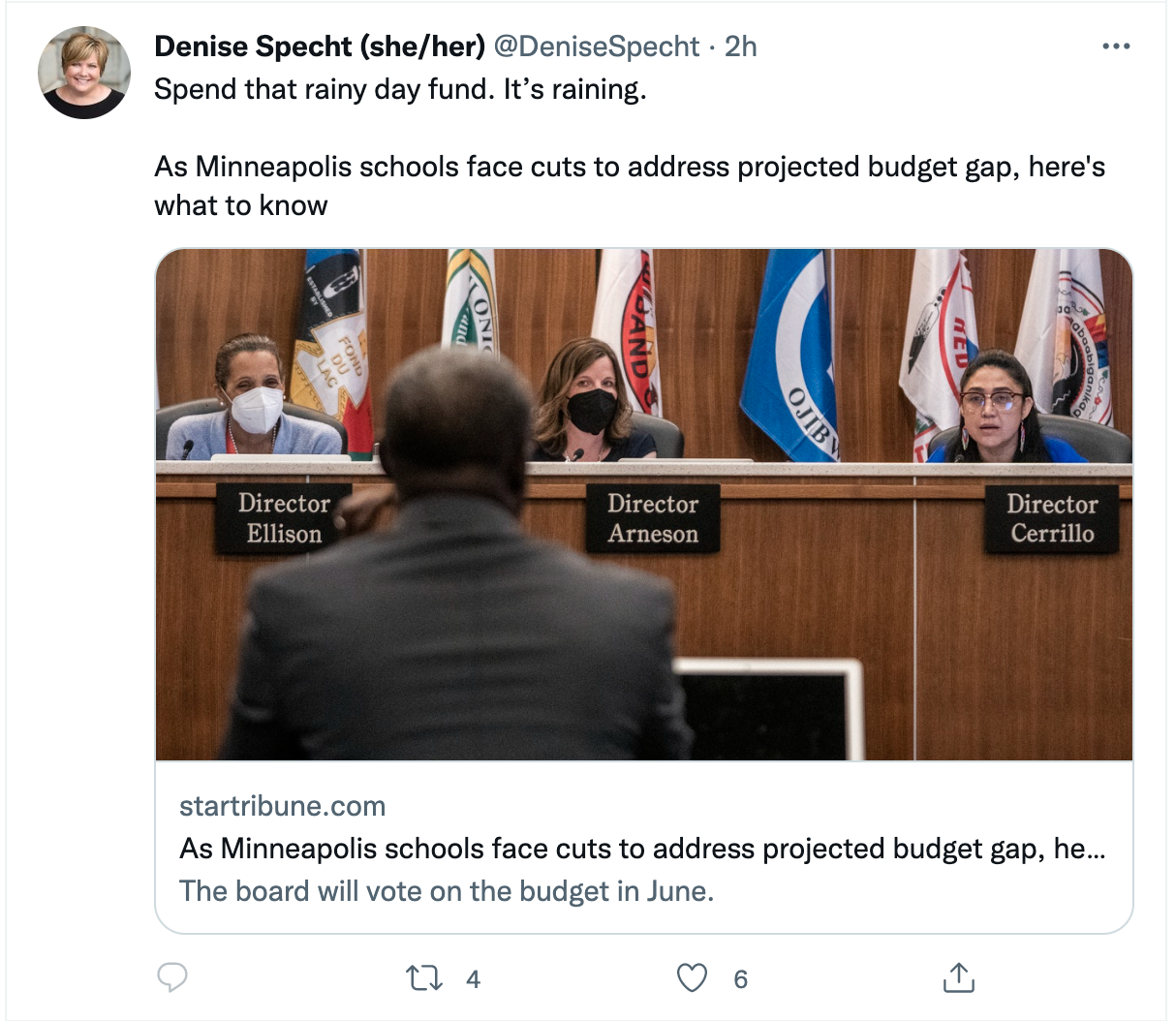| Rumor has it there will be a Capitol Bonding Bill It used to be that even years were for bonding bills and odd years were for budgets, but in recent years, the legislature hasn’t let conventional wisdom slow down their spending or borrowing. As of May 15, one week before adjournment, neither the House nor Senate had released a bonding bill. But rumor has it a deal is in the works for a bonding bill and perhaps a supplemental budget as well. In 2020, the legislature and Gov. Walz agreed to a record $1.9 billion borrowing bill right before the November election. Gov. Walz proposed a whopping $2.7 billion bill this year, calling it his Local Jobs and Projects bill. Governors love to characterize borrowing bills as job creation vehicles, even though their job creation claims can never be verified. In fact, Gov. Mark Dayton exaggerated his job claims so much that the legislature passed a bill requiring a report from the Office of Management and Budget each year on the number of jobs created by bonding. Unfortunately, MMB never actually produced a report, and the legislature gave up and repealed the reporting requirement. With billions of dollars floating around the Capitol, look for Democrats and Republicans to negotiate another huge borrowing bill. Debt service continues to be one of the fastest growing parts of the state budget, but no one seems to care about spending. American Experiment is still forwarding emails to Gov. Walz and legislators in our Give It Back campaign. Now is the time to put the pressure on. Minneapolis teacher strike costs finally revealed Discussion of the Minneapolis School District would not normally belong in a Capitol Watch newsletter, but the aftermath of the Minneapolis teacher strike does have implications on the state budget. That is, if union leaders get their way. Remember, the strike was about more than Minneapolis — it was about gaining statewide support to spend the $9.3 billion surplus on K-12 schools. It’s been almost two months since the strike ended and they’re finally releasing details about the agreement’s impact on the district budget. This is by design. The immediate news out of the strike was all about teacher raises, support for mental health staff and helping teachers of color. Union leaders praised the deal as a victory for teachers, even though they knew many teachers would be laid off because of the huge financial hole created by the new contract. The superintendent signed the deal and promptly resigned. According to the Star Tribune, the settlement will add $27.1 million to their current deficit of 59.1 million, and that’s after using $125 million in one-time federal COVID relief funds. That means the deficit will grow exponentially in the next budget once those federal funds are gone. These numbers assume the loss of another 1000 students next year, and since state funding is based on enrollment, you can see how Minneapolis is stuck in a funding death spiral. But fear not! Gov. Tim Walz will surely come to the rescue and save Minneapolis (and other school districts) from their unsustainable teacher contracts. State teacher union president Denise Specht implored the legislature this week via Twitter to “Spend the rainy day fund. It’s raining.”  It’s raining only because Specht and other union leaders seeded the clouds above Minneapolis by demanding contracts the taxpayers can’t afford. The House Democrat K-12 spending bill was drafted to answer the demands of the striking Minneapolis teachers — they didn’t even pretend to hide it. They would spend an additional $1 billion on K-12 schools with money for teacher salaries, retention bonuses, mental health supports and teachers of color. House Republicans criticized the bill for giving twice as much money to Minneapolis than outstate schools.The Walz plan is similar to the House DFL and includes an additional $1.8 billion for childcare programs. Walz’s own budget office reports his revised two-year budget now spends $60.7 billion dollars, leaving only $257,000 on the bottom line. Remember kids: permanent spending is ok, permanent tax cuts are dangerous.Senate Republicans were content to let last year’s huge increase in education spending work its way to classrooms before using the surplus to add even more. They did pass a modest $30 million package focused on literacy and reading.Education spending is one of the big things to watch in the last week of the legislative session. It’s raining only because Specht and other union leaders seeded the clouds above Minneapolis by demanding contracts the taxpayers can’t afford. The House Democrat K-12 spending bill was drafted to answer the demands of the striking Minneapolis teachers — they didn’t even pretend to hide it. They would spend an additional $1 billion on K-12 schools with money for teacher salaries, retention bonuses, mental health supports and teachers of color. House Republicans criticized the bill for giving twice as much money to Minneapolis than outstate schools.The Walz plan is similar to the House DFL and includes an additional $1.8 billion for childcare programs. Walz’s own budget office reports his revised two-year budget now spends $60.7 billion dollars, leaving only $257,000 on the bottom line. Remember kids: permanent spending is ok, permanent tax cuts are dangerous.Senate Republicans were content to let last year’s huge increase in education spending work its way to classrooms before using the surplus to add even more. They did pass a modest $30 million package focused on literacy and reading.Education spending is one of the big things to watch in the last week of the legislative session.Got a Tip? Send us your tips, criticisms, and hot takes at info@americanexperiment.org. Share this newsletter with a friend – they can sign up here. |
Filed under: Uncategorized |


Leave a comment